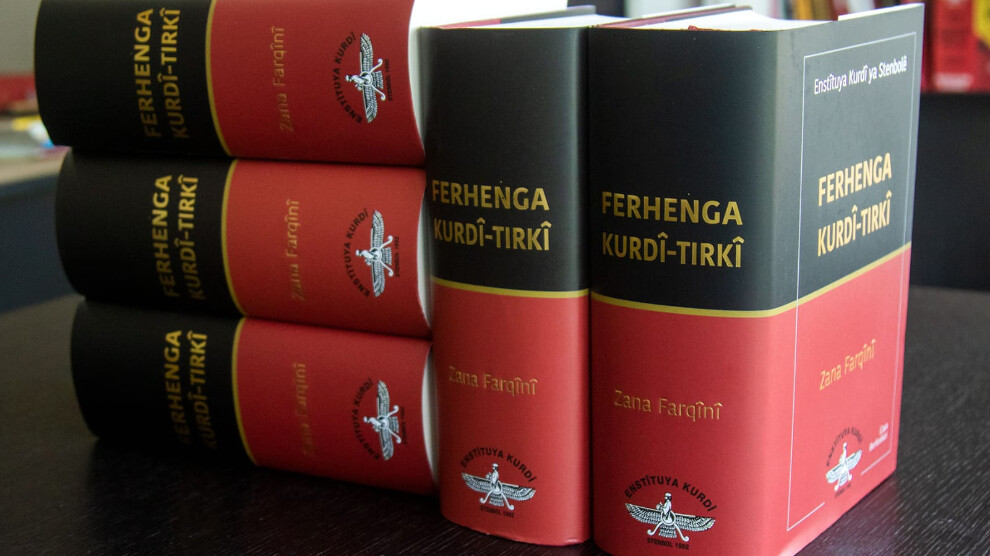New Kurdish-Turkish dictionary published
The Kurdish-Turkish dictionary, prepared by the Kurdish Studies Association, is out with a new edition containing an extra 44,000 new words.
The Kurdish-Turkish dictionary, prepared by the Kurdish Studies Association, is out with a new edition containing an extra 44,000 new words.

The Kurdish Studies Association (Komeleya Lêkolînên Kurdî) has released an expanded edition of the Kurdish-Turkish dictionary prepared by linguist Zana Farqînî. 44,000 new words have been added to the new edition of the dictionary. Thus, the number of words in the dictionary increased to over 224,000. The dictionary includes the meanings of words as well as the idioms and patterns in which the words are used.
Kurdish Studies Association co-chair Eyüp Subaşı said that the dictionary was first published in 2004 and added: “These words make the record of the Kurdish language continue. We cannot say that the Kurdish language has been fully recorded until now. The author of the dictionary, Zana Farqînî added new words to this dictionary and expanded it both by traveling and hearing.”
Pointing out that the dictionary was prepared using universal methods, Subaşı said: “The words in the dictionary were also taken from the words spoken by people and from the words written by the Kurds hundreds of years ago and added to this dictionary. This dictionary only covers the Kurmanji dialect. If we add the other dialects, one volume would not be enough. This dictionary is an indicator of the richness and vitality of Kurdish.”
Referring to the difficulties experienced in the process of issuing the dictionary, Subaşı said that the dictionary project went through a difficult time because of the economic crisis. Subaşı added: “The institutions that work on dictionaries have many problems. Therefore, publishing Kurdish dictionaries has become a difficult task. What we are doing is often done on a voluntary basis. Some Kurdish institutions are also working to record the Kurdish words and carry them to the future.”
'Kurdish is a rich language'
Subaşı said: “There are many rich languages in the world. Kurdish is one of those languages. The reason why it is rich is that it is an ancient language and was spoken in many regions many years ago. At the same time, since it is a language that is open to development, it is a language that can create new words.”